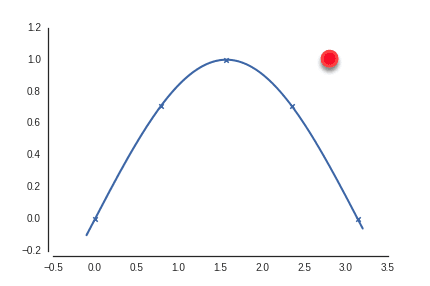In the June 5, 2018 Ask The Headhunter Newsletter we shake up salary negotiations and take down the Glassdoor myth.
Question
I know you don’t like Glassdoor’s salary survey data and employer reviews, but what are we supposed to use to base our salary negotiations on? I’m talking about job seekers.
Nick’s Reply
If you’ve ever used Glassdoor salary data to help you negotiate a job offer, did you wonder whether you might have under-sold yourself? According to a report in the June 2018 Wired magazine by Rachel Nuwer, Silicon Valley’s Exclusive Salary Database, you might have left an additional 69% on the table.
Wired tested samplings of self-reported Glassdoor salaries against Option Impact — a robust database of salaries reported directly by employers — and found glaring discrepancies. Option Impact is published by Advanced-HR for “elite users” — primarily venture capital firms and the tech companies they fund. These startups (and the investors behind them) can’t afford to make mistakes when competing for top talent, so they consent to share up-to-date salary information that Advanced-HR checks regularly.
In other words, unlike Glassdoor, which makes money off its data whether it’s accurate or not, Advanced-HR has a reputation to protect among VCs and the startups they run, and among the consultants and lawyers who serve them.
Option Impact: $101,955 (+43%)
Glassdoor: $71,004
The Glassdoor myth
I’m forever astonished at how easily people rationalize irrational behavior. Job seekers generally acknowledge that salary data and employer reviews on the popular Glassdoor website are biased and often phony. (See Can I trust Glassdoor reviews?) The salaries are questionable at best because they are self-reported. The web is rife with stories about HR managers and employers posting fake reviews to “balance” spiteful reviews from disgruntled employees.
Option Impact: $132,536 (+3%)
Glassdoor: $129,118
Yet I hear this all the time: “Well, I know all that, but you can still get a good idea about a company and what it pays by looking through all the information.”
No, you can’t.
Glassdoor admits it publishes, uh, crap
If you know some of the data are invalid but don’t know which, then it’s imprudent to trust any of it. Yet job seekers and employers peg their salary negotiations to anonymous Glassdoor “salary data” as if it’s a gold standard.
Glassdoor itself is clear in its Terms of Use that it doesn’t stand by anything posted by users or employers — that is, all its salary and company reviews:
“Because we do not control such Content, you understand and agree that: (1) we are not responsible for, and do not endorse, any such Content, including advertising and information about third-party products and services, job ads, or the employer, interview and salary-related information provided by other users; (2) we make no guarantees about the accuracy, currency, suitability, reliability or quality of the information in such Content; and (3) we assume no responsibility for unintended, objectionable, inaccurate, misleading, or unlawful Content made available by users, advertisers, and third parties.”
Sheesh. “Information” on Glassdoor is a myth. “Information” on Glassdoor is crap. What’s stupefying is that the company manages to survive and prosper by selling disclaimed “content” to suckers.
Glassdoor Salary Data: Worse than useless
The Wired report provides evidence suggesting Glassdoor’s salary data are worse than useless. The data are dangerous because they can actually cost you salary dollars when you decide how much to ask for. The job you’re negotiating for might be worth much more than the salary Glassdoor is “not responsible” for telling you it is.
Option Impact: $137,000 (+66%)
Glassdoor: $82,403
“Companies share their employees’ anonymized salaries in exchange for access to the vault, which is searchable by job title, location, company size, revenue, and funding stage.”
Why would a company tell the truth about what it pays? Probably because Option Impact is an exclusive club and because these companies know venture capital (VC) firms rely on the data.
(Of course, not every job and industry is going to be in any salary database, including Option Impact, and all the general criticisms of survey data apply, including, Are we talking about the exact same jobs? I’m not suggesting Option Impact is the answer — just that it’s a fatal counter-example to Glassdoor’s swill pot of whatever anyone wants to pour into it. Advanced-HR demonstrates that there are other ways to do this.)
How can you get access to Option Impact?
Unless you’ve got access to some venture investment firm’s login, you’re not going to have access to the data that enabled Steve to get a 23% higher salary than he might have without Option Impact data at his finger tips.
Option Impact: $126,125 (+69%)
Glassdoor: $74,591
So what’s my point, if you can’t get this data? It’s that if you trust your salary negotiations to salary data that you know is self-reported, unverified, untrusted, disclaimed and admittedly inaccurate (Thanks for the full disclosure, Glassdoor), you may be hurting yourself.
How can you get access to higher job offers?
Forget about getting your hands on valid salary data. It’s probably not going to happen. You’re not a VC or the CEO of a tech startup, and you probably can’t afford such exclusive insider data.
Instead, focus on the red meat of any job interview — be ready to show a hiring manager how you’re going to help drop additional profit to the bottom line if you get hired. Then you can ask for more money.
That’s a tall order, and there’s no short-cut. It’s why we’ve been talking about how to do it across hundreds of these Q&A columns. For example:
- Stand Out: How to be the profitable hire
- Can’t negotiate a higher salary? Ask for more money
- Why does he get more pay than me?
- More Money: What to ask for in a talent shortage
- How to make more money: Withhold your salary history
When a salary data vendor tells you it does not control the inaccurate, misleading information that it denies responsibility for, listen.
How do you know how much a job is worth? Does it really matter if you know how much you want? Do you use Glassdoor? How much would you pay for access to accurate salary data? What’s the secret to cracking the code of getting paid what a job is worth?
: :



 I think it’s bulltarkus. Any company that asks you to do an interview by yourself on video might as well hire an inflatable doll. If an employer asks you to invest your time to apply for a job while it avoids investing time in you, think twice before doing it.
I think it’s bulltarkus. Any company that asks you to do an interview by yourself on video might as well hire an inflatable doll. If an employer asks you to invest your time to apply for a job while it avoids investing time in you, think twice before doing it.